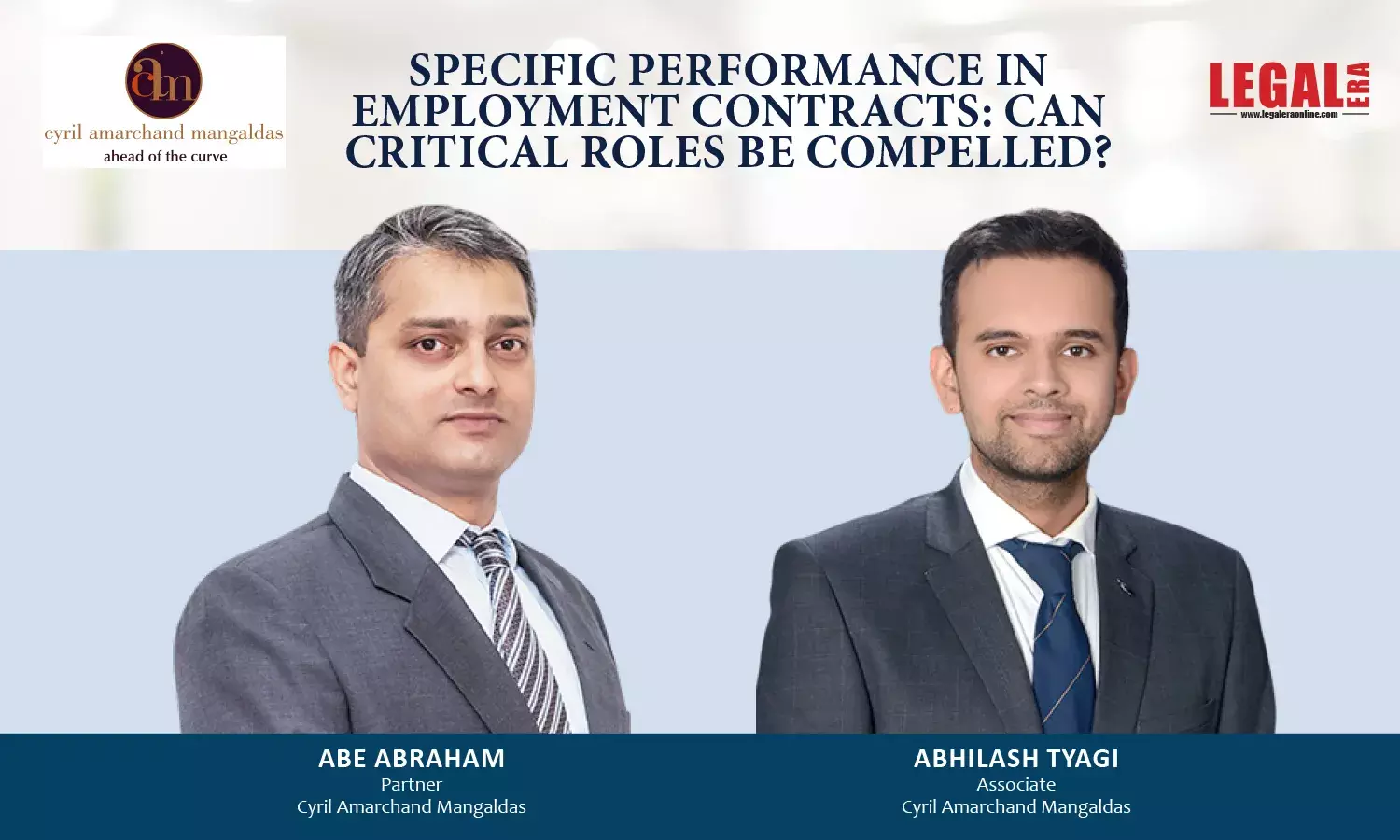Karnataka High Court’s Recent Judgement: Are OLA Drivers Employees Or Contractors?

Karnataka High Court’s Recent Judgement: Are OLA Drivers Employees Or Contractors? The Karnataka High Court (“Court”), in its judgement dated September 30, 2024 in Ms. X v. Internal Complaints Committee, ANI Technologies Private Limited and Ors1., held that the relationship between ANI Technologies Private Limited (“OLA”) and its driver subscribers was an employer-employee...
Karnataka High Court’s Recent Judgement: Are OLA Drivers Employees Or Contractors?
The Karnataka High Court (“Court”), in its judgement dated September 30, 2024 in Ms. X v. Internal Complaints Committee, ANI Technologies Private Limited and Ors1., held that the relationship between ANI Technologies Private Limited (“OLA”) and its driver subscribers was an employer-employee relationship for purposes of the Sexual Harassment of Women at Workplace (Prevention, Prohibition and Redressal) Act, 2013 (“POSH Act”) and such driver subscribers could not be considered as independent contractors.
The judgement, which closely scrutinizes OLA’s subscription agreements with its driver subscribers and customers, states that OLA cannot, on one hand, exercise complete control over the activities performed by the driver subscribers, while, on the other hand, onboard them as independent contractors to evade its responsibilities under relevant statutes. The judgment also analyzes the intent and objectives of the POSH Act and the wide ambit of the definitions of employer, employee and workplace under the POSH Act in furtherance of these objectives.
OLA has filed an appeal against the judgment before the Division Bench of the Court, which has issued an interim order2 staying its operation, stating that the issues raised in the judgement require further consideration. While the outcome of the appeal is awaited, the Court’s judgment of September 30, 2024, through its detailed reasoning, assumes significance in contributing to the discourse on the status of gig workers in the current labor economy and the responsibilities and liabilities of companies who engage such workers on a contract basis.
FACTS OF THE CASE
The petitioner had availed a taxi using the OLA platform to commute to her office in Bengaluru. During her commute, the petitioner was subjected to sexual harassment by the driver of the taxi. The petitioner repeatedly requested the driver to stop the taxi, but her request was to no avail, as the driver refused to stop the vehicle and the petitioner was finally able to exit the taxi only close to her workplace.
The petitioner filed a complaint initiating criminal action against the OLA driver. During the investigation, the OLA representatives confirmed that this was a case of driver “swapping” where the accused driver was not the driver registered on the OLA platform, but some other individual. OLA further stated that such instances of driver swapping were common and most of the cases filed against OLA were instances of sexual harassment on account of such driver swapping.
The petitioner thereafter issued a legal notice to OLA calling upon its Internal Complaints Committee (constituted under the relevant provisions of the POSH Act) (“ICC”) to initiate an investigation into her complaint in accordance with the POSH Act. In response, OLA stated that its ICC did not have jurisdiction to take cognizance of the complaint of the petitioner on the ground that the drivers were not its “employees” but were “independent contractors”.
Being aggrieved with the response received from OLA and the ICC, the petitioner approached the Karnataka High Court by way of a writ petition under Article 226 of the Constitution of India (“Constitution”).
KEY POINTS FROM THE COURT’S JUDGMENT
• OLA carrying out a public function and was, hence, amenable to writ jurisdiction of the High Courts under Article 226 of the Constitution
One of the arguments advanced by OLA was that the writ petition filed by the petitioner was not maintainable as OLA was not an instrument of the State, which would be amenable to writ jurisdiction. OLA further argued that it was not engaged in the exercise of a public duty or performance of any public function, as there was no obligation cast upon OLA to provide taxi services and OLA was simply engaged in a commercial activity.
Referring to previous judgements pronounced by the Hon’ble Supreme Court of India, the Court reiterated that writ petitions against private entities are maintainable if it is established that such private entity owes a duty and obligation to the public involving a public law element. The Court further stated that “public law” referred to law governing the relationship between the state and society. In this case, the relevant provisions of the POSH Act cast certain statutory obligations on OLA which it owes to the public at large. Provisions of the POSH Act requiring OLA to constitute an ICC and to receive and investigate complaints of sexual harassment from aggrieved women have a corresponding “public duty and obligation” towards the general public at large and accordingly involves a “public law element”.
The Court also referred to the relevant provisions of the Karnataka On-demand Transportation Technology Aggregators Rules, 2016 (“Aggregator Rules”) published by the Government of Karnataka, under which OLA had been granted a licence and hence was a “licensee”. The Court held that the Aggregator Rules imposed additional statutory obligations on OLA towards the general public inter alia to ensure safety of the passengers by ensuring proper use of taxi/vehicle and to report any untoward incidents to the licensing authority.
OLA’s arguments that it was not discharging any ‘public duty’ involving a ‘public law element’ were, therefore, rejected, making it amenable to Article 226 of the Constitution and the petition was held to be maintainable.
• Driver subscriber was an employee of OLA under Section 2(f) of the POSH Act
OLA’s central argument revolved around its contention that it was a mere intermediary which did not have any control over its “rider subscribers” or “driver subscribers”, except for providing a technology platform for them to come together. As a consequence, the “driver subscribers” were not employees of OLA and the ICC did not have jurisdiction to investigate complaints against them. OLA also pointed to its subscription agreement with driver subscribers, which stated that the relationship between OLA and the driver subscribers was that of an independent contractor and on a principal-to-principal basis.
Analyzing the definition of “employee” and “employer” under the POSH Act, the Court observed that the definitions intended to cover all possible means and modes of engagement of a person as an “employee” by the “employer” in furtherance of its business and related objectives. The Court also noted that the wide ambit of these definitions was consistent with the objectives of the POSH Act, which was to protect women against sexual harassment, a fundamental right guaranteed under the Constitution.
The Court went on to analyze the subscription agreement between OLA and its driver subscribers and noted that OLA exercised total supervision and control over all activities of the drivers while they provided services through the OLA application/portal and was not acting as a mere intermediary. The drivers had no independent discretion in determination of fares, bookings, deciding the routes or having any discussions with the user to the extent that the drivers were restricted from using their own mobile phones at the time of providing the services. OLA also exercised total control over the entire revenue generated by the drivers as the payment of incentives to such driver subscribers was at OLA’s discretion.
While the subscription agreement did include a clause stating that the driver will be an independent contractor, the Court noted that the driver hardly had any independent discretion once he subscribed to the terms of the subscription agreement.
The Court accordingly held that the term “employee” under the POSH Act was wide enough to cover every kind of relationship which the employer had with the employee and hence would include the driver subscribers of OLA regardless of OLA’s attempts through the subscription agreement to term them as independent contractors. The Court further pointed out that any interpretation otherwise would render the intent and objective of the POSH Act to be ineffective for the vast private sector of our country.
• Liability of OLA despite driver swapping
Another argument advanced before the Court was that the accused driver in this case was not the driver registered on the OLA portal and hence, the ICC had no grounds to initiate proceedings under the POSH Act against a person who had no privity of contract or relationship with OLA.
In response to this argument, the Court pointed out that the definition of “employee” under the POSH Act includes persons employed “with or without the knowledge of the principal employer”. As the Court had concluded that there did exist an “employer” and “employee” relationship between the driver and OLA and that the taxi belonged to a subsidiary of OLA, the Court held that the ICC was required to initiate proceedings against the impersonator driver in accordance with the POSH Act.
In light of its findings that an employer-employee relationship did in fact exist between OLA and its driver subscribers, the Court directed the ICC to conduct an enquiry into the petitioner’s complaint in accordance with the POSH Act and also awarded compensation of INR 0.5 million to the petitioner together with INR 50,000 as litigation expenses. The Court also directed the Karnataka Road Transport Authority to proceed with an investigation against OLA for violation of the Aggregator Rules based on the observations in the judgment. The operation of these directions has now been stayed pending the hearing before the Division Bench of the Court.
CONCLUSION
The rights of gig workers and protection of their interests have been topics of much debate with the growing popularity of non-traditional employment structures across markets and sectors. Courts in various jurisdictions, including the United Kingdom, United States of America and France, have analyzed and discussed similar factual positions involving Uber and its driver partners. In all such cases, courts in these jurisdictions concluded that the drivers were to be treated as employees of Uber and, as a consequence, were subject to applicable labor laws.
In India, the Social Security Code, 2020 (which is yet to come into effect), recognizes gig or platform workers as part of the informal sector and allows them to avail social security benefits. However, with the exception of social security benefits and barring a few initiatives of some state governments, gig workers are not entitled to protections under other labor legislation with respect to issues such as minimum wages, health and safety, collective bargaining rights and grievance redressal mechanisms.
This case raises important questions on the status of gig workers and the responsibilities of platform aggregators, specifically in the context of the POSH Act which has, to date, been a territory of uncertainty. The facts of the case are further complicated by the issues surrounding driver “swapping” as OLA did not have any contractual relationship with the impersonator driver. As the all-encompassing definition of employee in the POSH Act is intended to cover every form of employer engagement, regardless of terminology used, with the goal of protecting women against workplace sexual harassment, the Court’s judgment of September 30, 2024 appears to be a step in the right direction.
However, it is important to note that the definition of employee or similar terms varies across different labor legislations in India, most of which have a far narrower definition of the term than the POSH Act. This judgment, therefore, cannot be construed as implying that the relationship between OLA and its driver subscribers would constitute an employer-employee relationship for purposes of other laws.
Since this matter is now pending before the Division Bench of the Court, further judicial pronouncements in this case will be instrumental in determining the rights and responsibilities of gig workers under the POSH Act as well as the future course of the nature of the relationship between gig workers and gig economy companies.
2. ANI Technologies Private Limited v. MS. X (WA 1493/2024 dated October 04, 2024 issued by Karnataka High Court)






